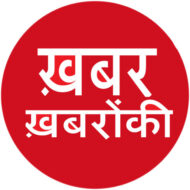
Ira Singh
Khabar Khabaron Ki,11 June’24
Union Finance Minister Nirmala Sitharaman is set to present the Union Budget early in July, which will detail the economic roadmap for the Modi administration’s third term. The budget is expected to focus on promoting labour-intensive growth and ensuring macroeconomic stability, according to a senior government official. Additionally, the budget will outline steps to realize Prime Minister Narendra Modi’s vision of transforming India into a ‘Viksit Bharat’ (Developed India) by 2047, the centenary year of the country’s independence.
Back in the saddle in signs of PM Narendra Modi preferring continuity in policy, FM Nirmala Sitharaman is likely to lay out the government’s economic agenda when she presents the first annual budget of Modi 3.0 next month.The economic agenda would include steps to fast-track reforms to make India a USD 5-trillion economy in near future. This ambitious vision encompasses a range of strategic initiatives to boost economic growth and foster sustainable development without hurting inflation as well as look for resources to meet the coalition government’s compulsion.
Last week, RBI projected the economy to grow 7.2 per cent in the current fiscal on the back of improving rural demand and moderating inflation. The new government inherits a strong economy with fiscal prudence in place. Icing on the cake is a bonanza from RBI which has reportedly announced the highest-ever dividend of Rs 2.11 lakh crore for FY24. The key policy priorities for the Modi 3.0 government would include dealing with stress in the agriculture sector, job creation, sustaining capex momentum and pushing revenue growth to stay on the fiscal consolidation path.
A host of measures on startups and taxation – including inverted duty structure correction, along with GST rate rationalisation is under discussion, according to information. These initiatives are expected to provide much-needed relief to industries struggling with the current tax anomalies and encourage a more robust business environment.
The Union budget is also expected to introduce policies aimed at enhancing the ease of doing business, thereby attracting both domestic and international investments.Measures to provide better access to funding, mentorship, and market opportunities for startups are likely to be included.On the social front, increased allocations for healthcare, education, and rural development are anticipated to address the needs of the underprivileged and promote inclusive growth. The budget aims to strike a balance between growth and social welfare, ensuring that economic benefits reach all segments of society.
Meanwhile,Finance Ministry has announced the release of an additional installment of tax devolution to states for June 2024, in a move to support state finances and spur economic development. The total amount released to states for June now stands at Rs 1,39,750 crore, according to information.With this release, the total amount devolved (for FY 2024-25) to states till June 10 stands at Rs 2,79,500 crore, according to estimates.
As the Modi administration enters its third term, the upcoming budget will be a litmus test of its economic strategy and commitment to driving long-term, sustainable growth. The comprehensive plan laid out in the budget will be crucial for setting the pace of India’s economic development in the coming years.
